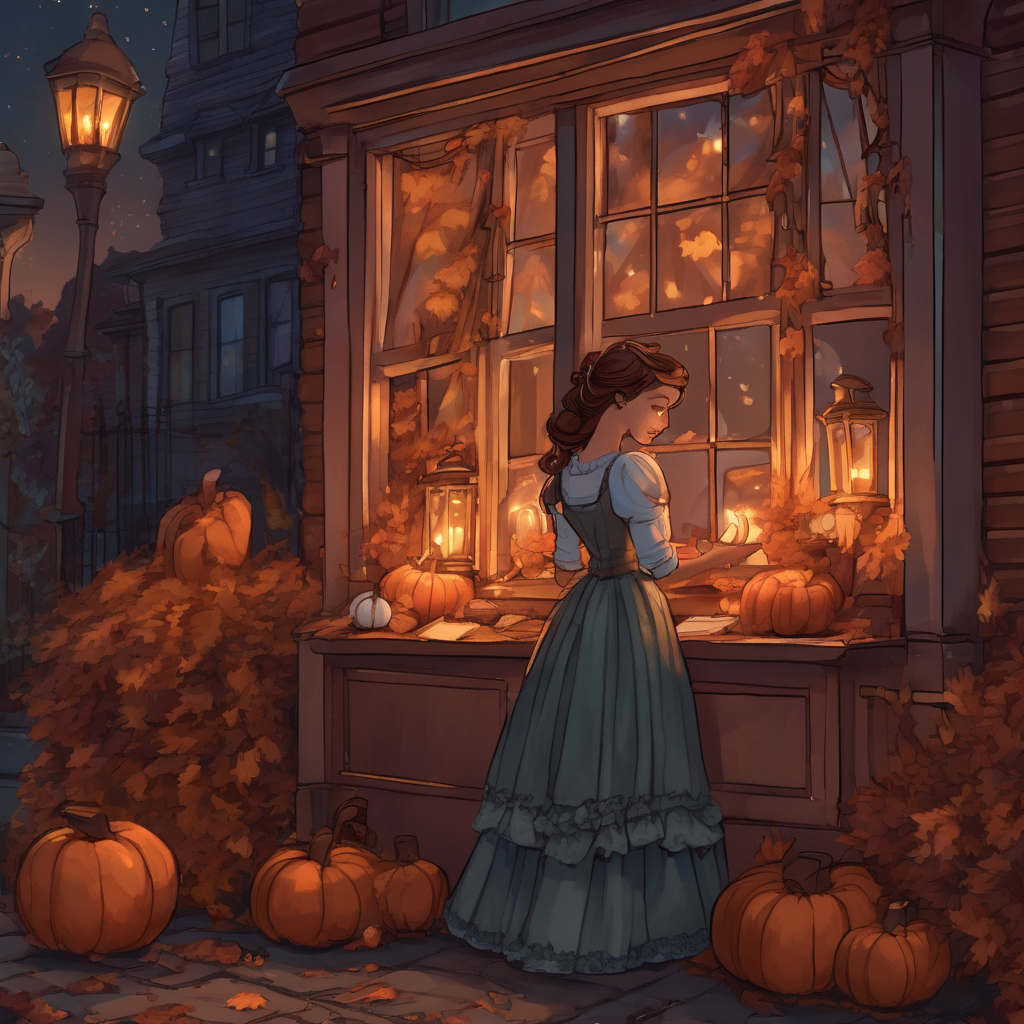In the shadowed alleys of a forgotten Victorian town, where gas lamps flickered like hesitant stars, lived Elara, a seamstress whose fingers danced over fabrics woven from dreams. The air was thick with the scent of autumn leaves and pumpkin spice, a seasonal elixir that whispered of harvest moons and hidden longings. Elara’s shop, tucked between a crumbling bookstore and a teahouse favored by wandering poets, held a secret: the Eternal Mirror.
It wasn’t just any looking glass. Framed in silver etched with runes that glowed faintly under moonlight, the mirror had been passed down through generations, a relic from an era when magic seeped into the mundane like ink on parchment. Legends spoke of its whispers—soft, insistent voices that revealed truths buried in the soul. But Elara had never heard them. She used it merely to admire her creations: gowns of sustainable silk, dyed with berries from the wild woods, embodying a quiet rebellion against the excesses of the industrial age.
One crisp evening, as the town buzzed with preparations for the annual harvest festival—a whirlwind of folk dances and viral tales shared by firelight—Elara stood before the mirror, pinning a brooch to her latest design. The fabric shimmered with threads of rose gold, evoking the aurora borealis she had once seen in a traveler’s sketch. “If only I could capture that light,” she murmured, her reflection staring back with eyes that seemed… deeper.
That’s when the whispers began. Not loud, but intimate, like a lover’s breath on the neck. “Swiftie,” it hissed, a word that made no sense at first. Elara froze, her heart pounding in rhythm with the distant festival drums. “Swiftie… eras… unravel the gaslighting veil.”
She stepped closer, her breath fogging the glass. The mirror’s surface rippled like a pond disturbed by a falling leaf. Images flickered: a young woman, much like herself, navigating a labyrinth of shadowed corridors, pursued by illusions of doubt. “Mental health,” the whisper continued, “is the true Barbenheimer—beauty in the blast, destruction in the dollhouse.”
Elara touched the frame, and suddenly she was pulled in, her world dissolving into a surreal tapestry. She found herself in a grand hall where chandeliers dripped with melting wax, and guests wore masks of porcelain smiles. A figure approached, cloaked in velvet, her face a mosaic of past and future. “You’ve come to hear the eternal truth,” the figure said. “In this mirror realm, we confront the trends that bind us—quiet quitting the chains of expectation, embracing climate action as our sacred vow.”
Elara wandered deeper, the whispers guiding her through gardens where flowers bloomed in impossible colors, fed by waters of mindfulness. She saw visions of her own life: the gaslighting words of a former suitor, who had twisted her realities like knotted yarn; the quiet quitting of her youthful ambitions, buried under societal whispers. “Oppenheimer’s fire,” the mirror intoned, “is the spark of creation and ruin. Choose your era wisely.”
In a climactic chamber, Elara faced her reflection—not as she was, but as she could be: a weaver of destinies, her gowns portals to forgotten worlds. The whispers swelled. “Viral is the soul’s echo; sustainable, the heart’s endurance.”
With a gasp, Elara emerged back in her shop, the mirror still once more. But she was changed. She stitched new patterns into her fabrics—symbols of resilience, threads of self-care woven with the strength of auroras. The town marveled at her creations, unaware of the eternal whispers that had ignited her transformation. And in the quiet nights, Elara would smile at the mirror, knowing its secrets were hers to keep, a bridge between the mundane and the magical.

Leave a Reply